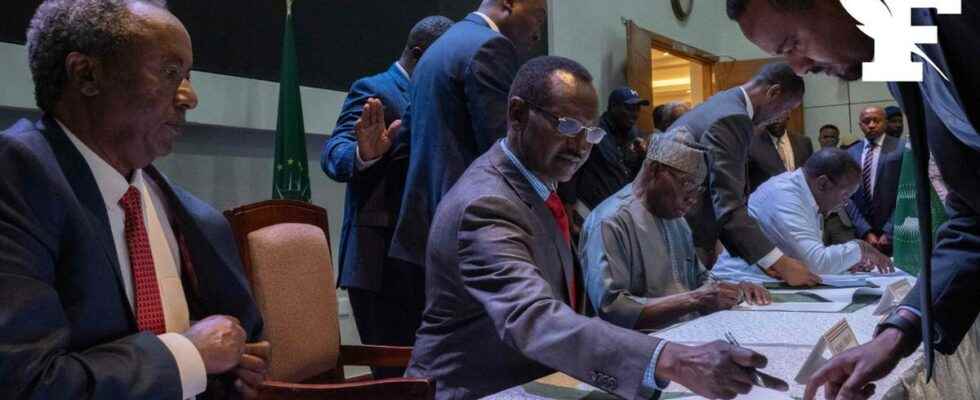“What awaits us” is good “more substantial than the path traveled so far“, assured the spokesman for the rebel authorities in the Tigray region on Sunday, the day after a joint declaration with the Ethiopian federal authorities on the implementation of the agreement on the cessation of hostilities.
A peace agreement after two years of conflict was signed on November 2 in Pretoria, South Africa, providing in particular for the disarmament of rebel forces, the restoration of federal authority in Tigray and the delivery of aid.
The belligerents signed Saturday in Nairobi, Kenyan capital, a joint declaration to facilitate a “humanitarian access to all those in need in Tigray and neighboring areas“. The signed document also provides “security guarantees for humanitarian workers“. This agreement shall takeeffect immediately“.
“We have concluded our long (…) negotiations to peacefully resolve the war in Tigray“Wrote Sunday in a tweet Getachew Reda, spokesperson for the rebel authorities of Tigray, present at the negotiations in Pretoria and Nairobi. “What awaits us and how we manage it is much more significant than the path we have traveled so far“, he continued.
The agreement signed in Pretoria provided for the disarmament of the Tigrayan forces. The two parties agreed on Saturday that “the disarmament of heavy weapons will be done simultaneously with the withdrawal of foreign forces», in reference to Eritrea, a country bordering Tigray, which supports the Ethiopian army in the region.
“We welcome the agreement (…) to allow immediate and unhindered humanitarian access to Tigray and neighboring areasWHO boss Tedros Adhanom, himself a Tigrayan and former senior official of the party from which the rebel authorities came, wrote on Twitter on Sunday, saying that “people are in massive need of health assistance“.
“We already have teams in Tigray, (and neighboring regions of) Afar and Amhara, and we are preparing to provide more humanitarian aidA spokesperson for the United Nations High Commissioner for Refugees in Geneva told AFP on Sunday.
deadly conflict
Tigray, a region in northern Ethiopia, is cut off from the rest of the country and deprived of electricity, telecommunications networks, banking services and fuel. The road and air transport of humanitarian aid has been almost completely interrupted since the resumption of fighting on August 24, after a five-month truce.
The conflict in Tigray began in November 2020 when Ethiopian Prime Minister Abyi Ahmed sent the federal army there to arrest leaders in the region, who had challenged his authority for months and whom he accused of attacking federal military bases. on the spot.
Initially defeated, Tigray rebel forces regained control of most of the region during 2021, in a counter-offensive that spilled over into Amhara and Afar and saw them approach Addis Ababa.
The rebels then retreated towards Tigray.
The results of this conflict marked by countless abuses, which took place largely behind closed doors, journalists not having access to the area, are unknown. But the International Crisis Group (ICG) and Amnesty International (AI) describe it as “one of the deadliest in the world“.
The war has also displaced more than two million Ethiopians and plunged hundreds of thousands into near-famine conditions, according to the UN.
